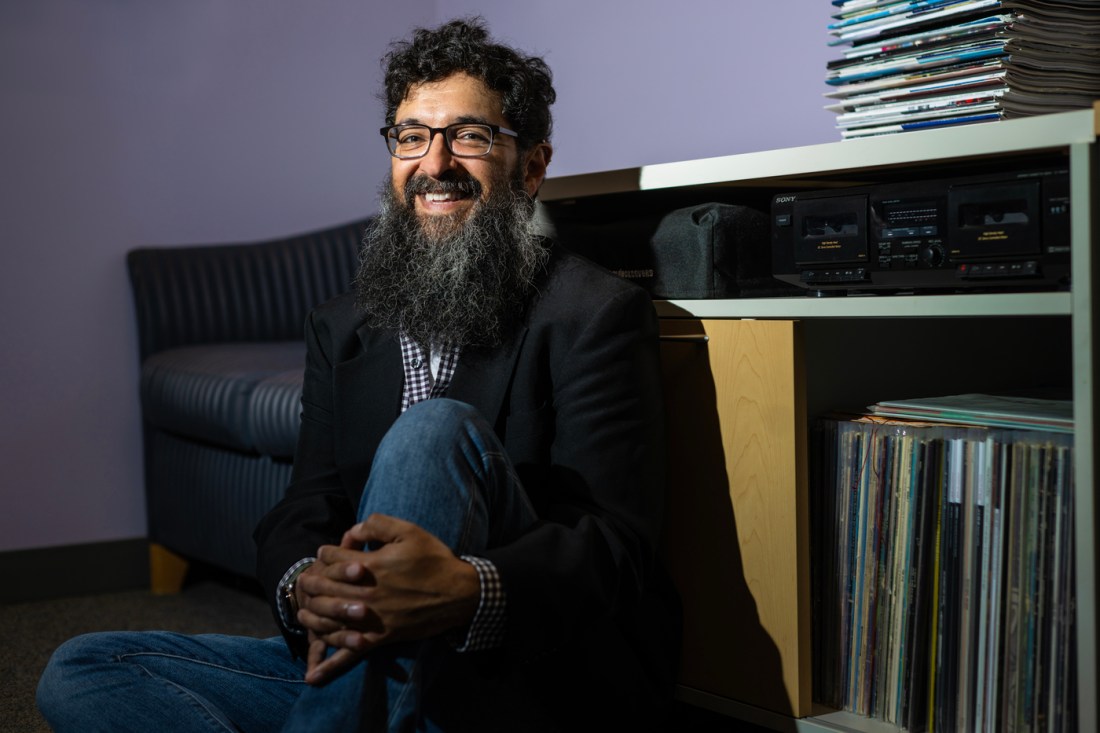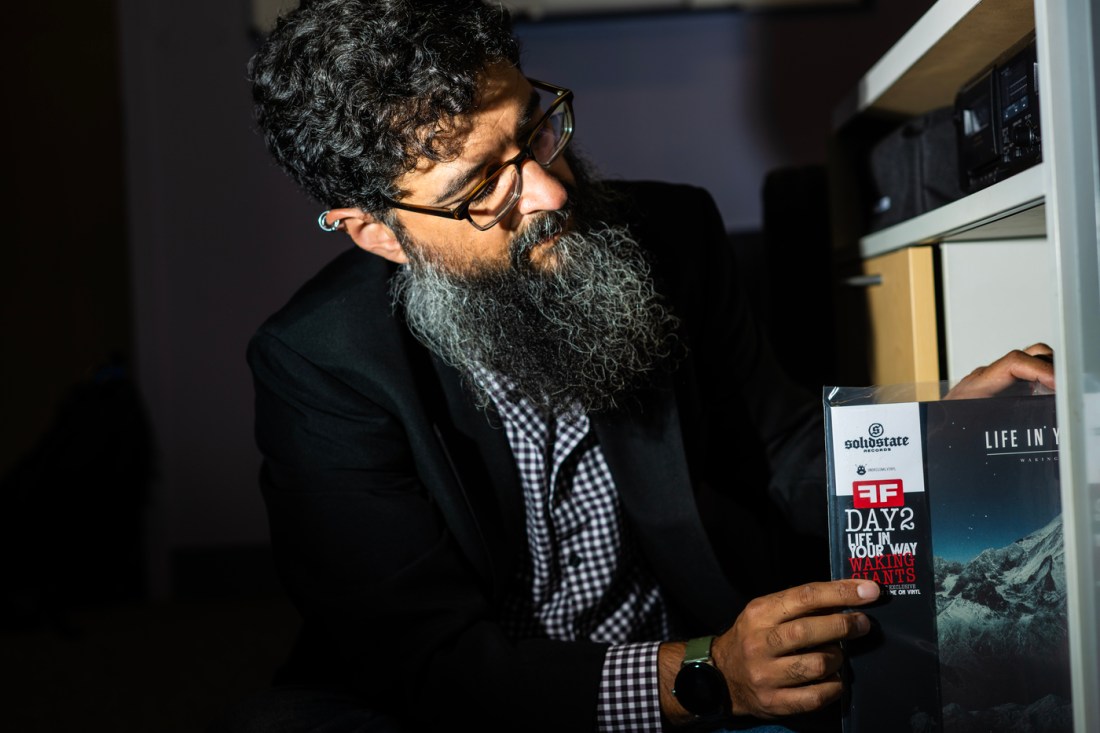Caught vinyl fever? Our music expert has tips
Andrew Mall, associate professor of music, has a collection of 1,500 records. He gives his top tips for those venturing into the world of buying vinyl records.

Every record collector has a story about how they got going.
Maybe they inherited a load of dusty LPs from a relative or possibly they wanted physical copies of the music by their favorite band or artists in a world where streaming is king.
Andrew Mall, associate professor of music at Northeastern University, is no different. When growing up, he would accompany his mother during her weekend tour of the neighborhood’s yard sales. At the time, music collectors were offloading their heavyweight records to replace them with CDs, allowing Mall to pick up unwanted classic LPs at rock-bottom prices.
Today, Mall’s collection has swelled to 1,500 records. Here he explains how to get started on your own collection in the era of the vinyl revival. His comments have been edited for brevity and clarity.
Do you remember the first record you bought?
I really don’t. I remember the first cassette that I bought, possibly when I was in the third grade — it was the Teenage Mutant Ninja Turtle soundtrack.
But I don’t remember the first record that I bought. It was probably something like Led Zeppelin, AC/DC, Aerosmith or Black Sabbath — something like that at a yard sale.
What would be your top tip for someone starting a record collection now?
Buy records that you want to listen to. Once you start doing that, you’ll start to maybe develop a reason for putting a collection together.
Some collectors are completists about one band, artist, genre, scene or era. You may not decide that right away, but if you find yourself thinking, ‘Oh, turns out all the records I want to listen to are all this kind of genre,’ then that could lead you to looking for more stuff that you don’t know about yet.
Is there anything to avoid when starting a record collection?
I would avoid buying records to look cool. I would also avoid buying records because you think they might be worth a lot of money one day.

Buying records can be an expensive hobby. How do you stay on top of that?
You should think in terms of a budget. You probably have a budget with all of your other bills and expenses, including a range for how much money you can afford to spend on going out, on dinners, on clothing — that kind of stuff. Figure out where record collecting fits in that budget and do your best to stick to it.
How do you keep track of your records?
The website Discogs is a really useful resource. Collectors can create a profile and index their collections using the Discogs database — for me, this has been helpful in preventing unintended duplicate purchases. It is probably the most accurate representation of aftermarket values for records and works as a good reality check when you are shopping at a store or vinyl fair.
It also has a secure peer-to-peer marketplace preferred by most record collectors over eBay and other platforms.
What else do new collectors need to know?
The latest annual music industry reports suggest that about half the people who buy records don’t even own a turntable. So, along with buying music that you want to listen to, make sure you have a way to listen to it.
Do you have any recommendations for a reasonably priced turntable?
I have two — the first is Audio-Technica. They have entry-level turntables that are belt-driven starting at around $100, and they are good turntables.
And the other brand that I tend to recommend is based here in Massachusetts — it is U-Turn Audio. In fact, one of the founders studied at Northeastern.
What I like about both of those is that you can buy the cheapest model and then choose to upgrade components as you start to develop your taste.
They are not all-in-one, which means you do have to also buy speakers and at least a preamp, but you can then choose to upgrade those later. You can get a preamp for $30 and you can get a pair of powered speakers for $50-$100, so you can get a whole setup for like $200-$250.
Now onto some quick-fire questions. If your house were burning down, what one record would you save?
The ‘Saturday Night Fever’ soundtrack. It’s not worth much but it still has great sentimental value as being central to my relationship with my wife. Watching that movie on DVD was one of our first dates.
What’s your most valuable record?
My most valuable is one I’ve had for over 30 years: a 1993 pressing of Smashing Pumpkins’ “Siamese Dream” [average selling price on Discogs is $300].
Is there a ‘holy grail’ you’re on the lookout for?
One of my favorite albums is The Wrens ‘The Meadowlands.’ It only was released on CD when it came out in 2003. You would be lucky to find the 2006 vinyl re-pressing for under $250 today.
What’s your go-to record store in Boston?
Tres Gatos in Jamaica Plain. It’s a unique place. It is a restaurant serving small plates and then there’s a record store in the back. The guy that manages the record store side of things is super nice, super friendly.
